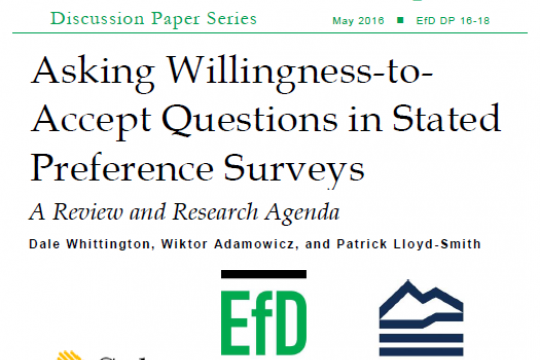Stated preference (SP) researchers have encountered an increasing number of policy problems
for which a willingness-to-accept (WTA) compensation question would seem to be the most reasonable approach to structure the respondent’s valuation choice task. However, most SP researchers are still reluctant to pose WTA questions to respondents due to concerns about reliability of responses and confusion about what contexts warrant a WTA question compared to a willingness-to-pay (WTP) question. This paper synthesizes the current literature, provides guidance on when and how to use WTA elicitation formats, and identifies research needs. We present a typology of valuation tasks that illustrates the situations in which WTA questions are appropriate and should be used to estimate welfare-theoretic measures of economic benefits—and when they should be avoided. We also discuss three different design issues that SP researchers need to consider when they use WTA questions: 1) elicitation of reference and status quo conditions, 2) incentive compatibility and private versus public goods, and 3) nonconforming responses. We conclude that good survey design makes it possible to ask respondents “sensible” WTA questions in many cases, yet several key research issues require attention.


